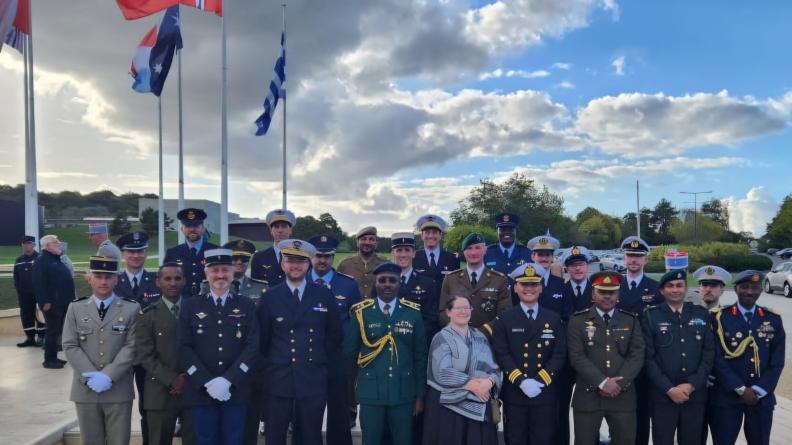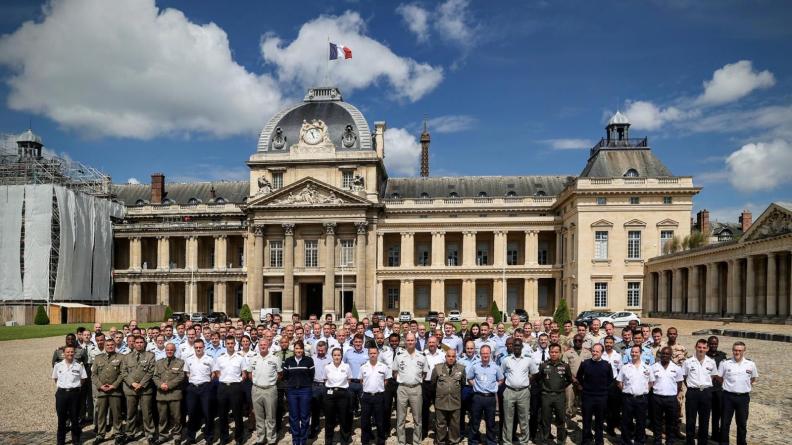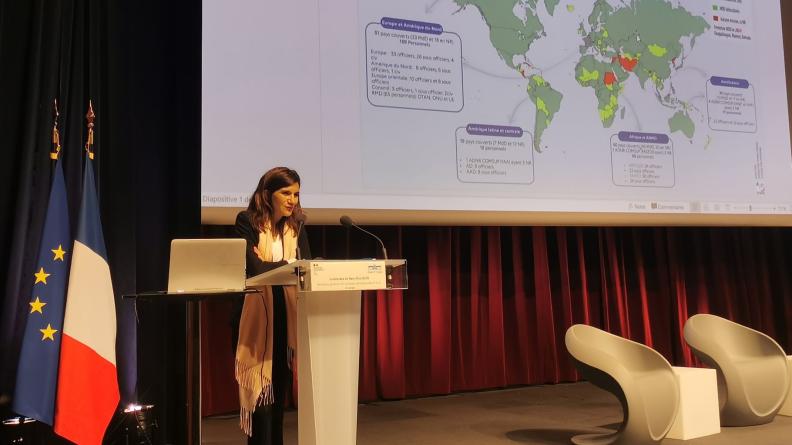What do alliances mean in the 21st century ?
The ecole de guerre networking group organized an international symposium on the meaning of alliances in the 21st century. In partnership with the Royal United Services Institute (RUSI), officers fr0m the networking group gathered three panels of internationally renowned experts to discuss the meaning and the future of alliances in the ever-changing context of the twenty-first century.
In the first panel, Professor Katarzyna Zysk (Norwegian Institute for Defence Studies) underlined the need to reinforce NATO, seconded by General Palomeros who insisted on the need to build steady commitments such as NATO’s Article 5 to strengthen the common political objectives. The second panel with Dr Antoine Bondaz (Fondation pour la Recherche Stratégique - FRS) and Dr Eugene B. Kogan (Harvard Business School) put the emphasis on the specifics of power projection and demonstrations of resolve to honor those commitments. The third panel offered an opportunity to broaden the horizons of the attendees. It gathered the thoughts of Lord Peter Ricketts (former UK Ambassador to France) who witnessed the back and forth movement of alliances fr0m within and of Bertrand Badré (former director of the World Bank) who surprised the audience, using the flower trade to illustrate the far-reaching consequences of climate agreements. As third member of the panel, Bruno Tertrais (director of the FRS) ended on an optimistic note: standing military alliances are not a thing of the past.
Immense thanks to our speakers and moderators, fr0m top to bottom: Ed Arnold, Katarzyna Zysk, Général Paloméros, Sidhart Kaushal, Antoine Bondaz, Eugene Kogan, Sarah Ashbridge, Bertrand Badré, Lord Ricketts, Bruno Tertrais.
A la une
Un nouveau département pour l’Ecole de Guerre : l’Anglophone Track
Depuis la rentrée 2024, l’Ecole de Guerre comprend un nouveau département baptisé Division Internationale Anglophon...
05 mars 2025

Le CJEX, un défi multinational pour les Écoles de guerre
Début mai, les Écoles de guerre d’Allemagne, d’Espagne, d’Italie, du Royaume-Uni et de France ont conduit conjointe...
30 mai 2024

Allocution de la Directrice générale des relations internationales et de la stratégie devant l'École de guerre
La 31e promotion de l'École de guerre a eu l'honneur d'assister à une allocation de la Directric...
23 mai 2024
